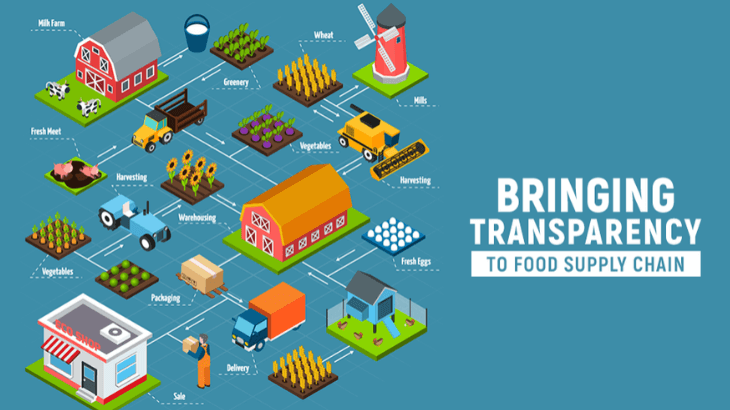The Role Of Blockchain In Ensuring Food Supply Chain Transparency
The food supply chain is a complex, winding road that stretches from farm to table, crossing multiple borders, and involving numerous stakeholders along the way. While it’s a marvel of modern logistics, this intricate network has its fair share of weaknesses. One of the most significant concerns is a lack of transparency, which can lead to food safety issues, quality control problems, and even supply chain disruptions.

- The Role Of Blockchain In Fighting Climate Change
- Maximizing Your Crypto Earnings: Top Lending Platforms For Passive Income
- The Rise Of NFTs In The Digital World
- The Future Of Blockchain In Agriculture And Food Supply Chains
- Navigating The Crypto Storm: Pro Strategies To Weather The Volatile Market
That’s where blockchain technology comes in. By providing a tamper-proof, decentralized ledger of transactions, blockchain can shine a light on the food supply chain, allowing consumers, producers, and regulators to access a wealth of information – from origin to destination.
Imagine being able to scan a code on your food packaging and instantly knowing where the ingredients were sourced, how they were processed, and even the journey they took to reach your plate. This level of transparency can greatly increase consumer trust in food brands and, ultimately, the food they eat.
One reason blockchain is particularly well-suited to the food supply chain is its ability to track movement and ownership in real-time. With traditional methods, this information often exists in fragmented, siloed formats, making it difficult to access and share. Blockchain, on the other hand, creates an immutable record of every transaction, allowing stakeholders to track food as it moves from farm to processor to distributor to retailer.
Another significant benefit of blockchain in the food supply chain is its potential to improve food safety. According to the World Health Organization (WHO), one in ten people worldwide fall ill every year after consuming contaminated food. By providing a clear, chain-of-custody record, blockchain can help identify the source of contamination much faster and with greater accuracy. This rapid response capability can greatly reduce the risk of further illnesses and, more broadly, improve public health.
Beyond the technical benefits, blockchain adoption in the food supply chain also presents an opportunity for more sustainable and equitable food systems. By giving farmers greater visibility into market demand and prices, blockchain can help ensure they receive fair compensation for their produce. This, in turn, can promote more environmentally-friendly farming practices and support small-scale producers who otherwise might not be able to compete in a global market.
A number of companies are already putting blockchain technology to work in the food supply chain, from major retailers to startup organizations. For instance, a technology company specializing in supply chain management, partnered with a global food company to track tuna as it moved from the ocean to the store. The blockchain-based platform, called, created an immutable record of every transaction, providing regulators, consumers, and others with a single source of truth about the origin, quality, and authenticity of each tuna catch.
As the food supply chain continues to evolve in the face of growing consumer demand for transparency, sustainability, and accountability, it’s likely that blockchain will become an increasingly essential tool for stakeholders across the board, from farmers to retailers.
